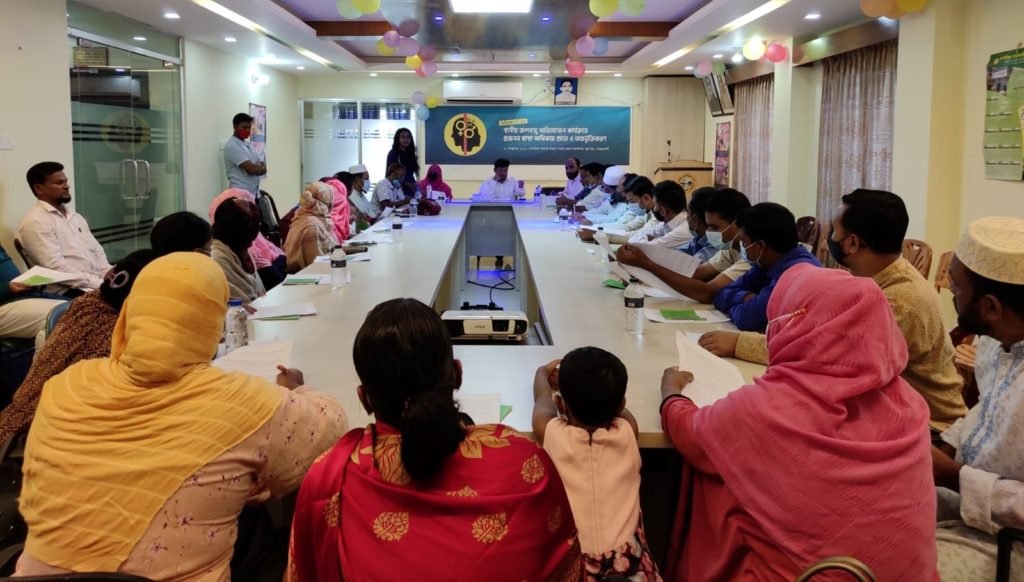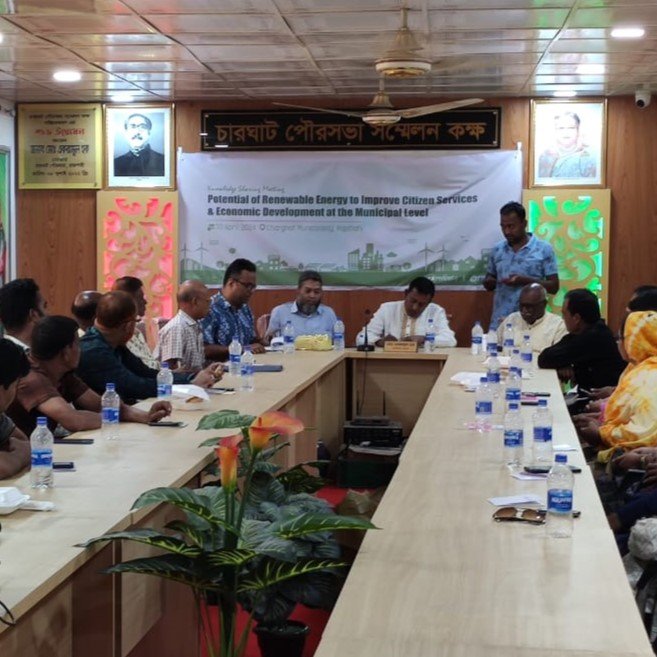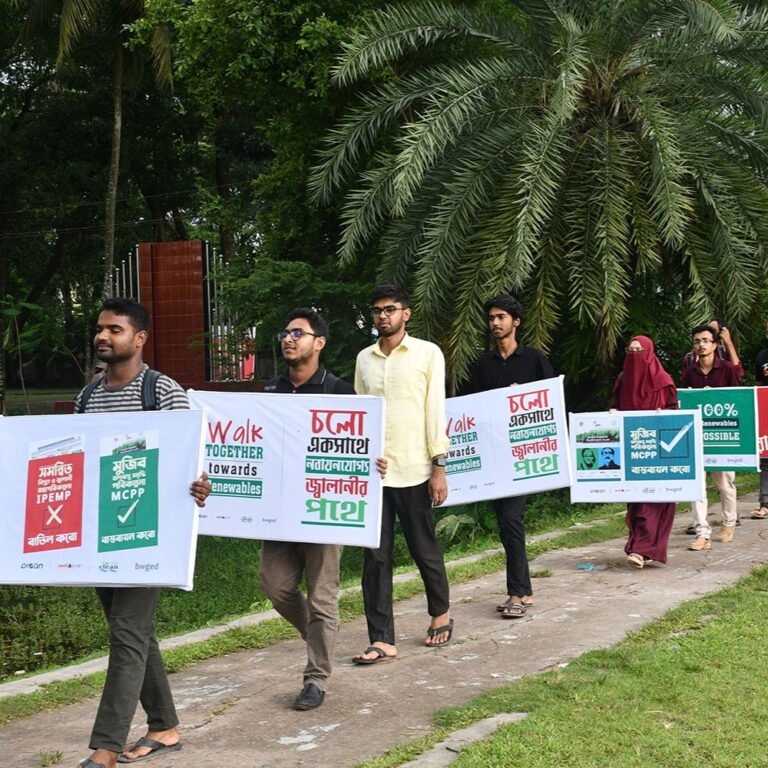
Women face different challenges to maintain proper hygiene regardless of home and outdoor. For school-going girls, lack of sanitary materials, the social culture related to menstruation hygiene management, inadequate water, sanitation, and hygiene (wash) facilities, lack of guidance and privacy for changing and washing at school are common issues related to inadequate menstrual hygiene practices that have adverse effects on reproductive health and education as well.
The speakers expressed their concerns regarding the struggles of girls in school managing their period, on an advocacy meeting ‘Initiating Goodwill to Accelerate necessary SRHR Education and Facilities in Educational Institutions’ held on 21st of October, 2021 at Sagorika, Noakhali. Organized by Participatory Research Action Network- PRAAN, about 45 participants joined the meeting including teachers from schools and colleges, CSO representatives, journalists, and young activists. The event was facilitated by Umme Salma, Program Coordinator of PRAAN.
A policy brief was presented at the meeting based on the survey conducted among adolescents and women from Subarnochar. Among the participating adolescents, 78% reported a lack of sanitary napkins in schools, 57% of students mentioned they do not have clean toilets in their school, 30% mentioned lack of soap and water facilities and 28% reported inadequate access to disposal of period equipment. 98% of the students said that they return home when the school period starts.
In his opening speech, Sagorika Somaj Unnayan Songstha Executive Director said that Menstrual Hygiene Management continues to be left out of the agenda from both the water, sanitation, and hygiene, and education sectors. Because of the existing taboo, most people find menstrual hygiene a difficult subject to talk about. As a result of these issues, we fail to address the needs of women and girls. There are several schools where female students have separate toilets. But the question lies here that if the number of toilets and other hygiene facilities is enough in the ratio of the students, he added.
There was a lack of hygiene facilities in schools in past times. But now the overall situation is comparatively developed, said Hosne Ara Begum, Assistant Teacher of Haji Mosharaf Hosen School & College. She said, ‘We try to arrange sessions with female students on personal hygiene management. But I think still we have a lot more to do as we are not being successful, to be open with them enough and we also need some other supplies added to our hygiene management system for our female students.’
Ismail Hossain, Lecturer of Saikat Government College said the family is the first educational institution. But teachers can open the door with knowledge as well as necessary support as much as possible to make bring positive change in hygiene management in schools. ‘Due to the shyness of the teachers and existing cultural taboos, the teachers skip the chapters on Sexual and Reproductive Health Rights. As a result, the students also hold a conservative attitude towards SRHR and about menstruation especially’, he said. He also added that proper Hygiene Management Facilities are rights to anyone and we must take collective action to change the existing negligence towards hygiene management facilities in the school.
Mohammad Abu Taher, lecturer of Char Jabbar Degree College suggested that a dedicated female teacher can be of great help in this regard. If the Chiefs of educational Institutions come forward, establishing a hygiene corner does not cost that much, rather goodwill is the only driver for bringing this change.
Ayesha Siddiqa Lucky from development organization Nijera Kori shared her experience of working on SRHR in the schools of Subarno Char. She expressed her utter surprise that even the teachers leave the room when the topic appears in the discussion. ‘We are the outsiders. If teachers speak and take steps to break the taboo and educate the girls and also boys that Sexual and Reproductive Health services is our rights, the future of the generation can remain free from unnecessary shyness and superstitions.
In this context, Yasir Arafat, Head Master of Abdullah Miyar Haat High School also shared his experience in distributing sanitary napkins among students. The students do not feel comfortable taking napkins from the teachers. He criticized teachers for pulling themselves back from their responsibilities in this regard. It is the failure of the teacher that they are failing to inspire the students. He mentioned that there is still a long way to go to make the discussion spontaneous among the students and this is a must to establish a proper hygiene system including sanitary napkin supply, wash facilities, and proper education as well.
An instant survey was conducted among the teachers where they were asked to rate the existing hygiene management facilities in their respective institutions on a scale of 10. All of them responded to the survey. Only one of them rated the facilities 10. Seven teachers marked the facilities as 1 and the others marked 3, 4, and 5’s. The teachers expressed their commitment to work forward ensuring proper hygiene supplies in their institutions and also grooming themselves to be able to educate their students on Sexual Health and Reproductive Rights spontaneously.




